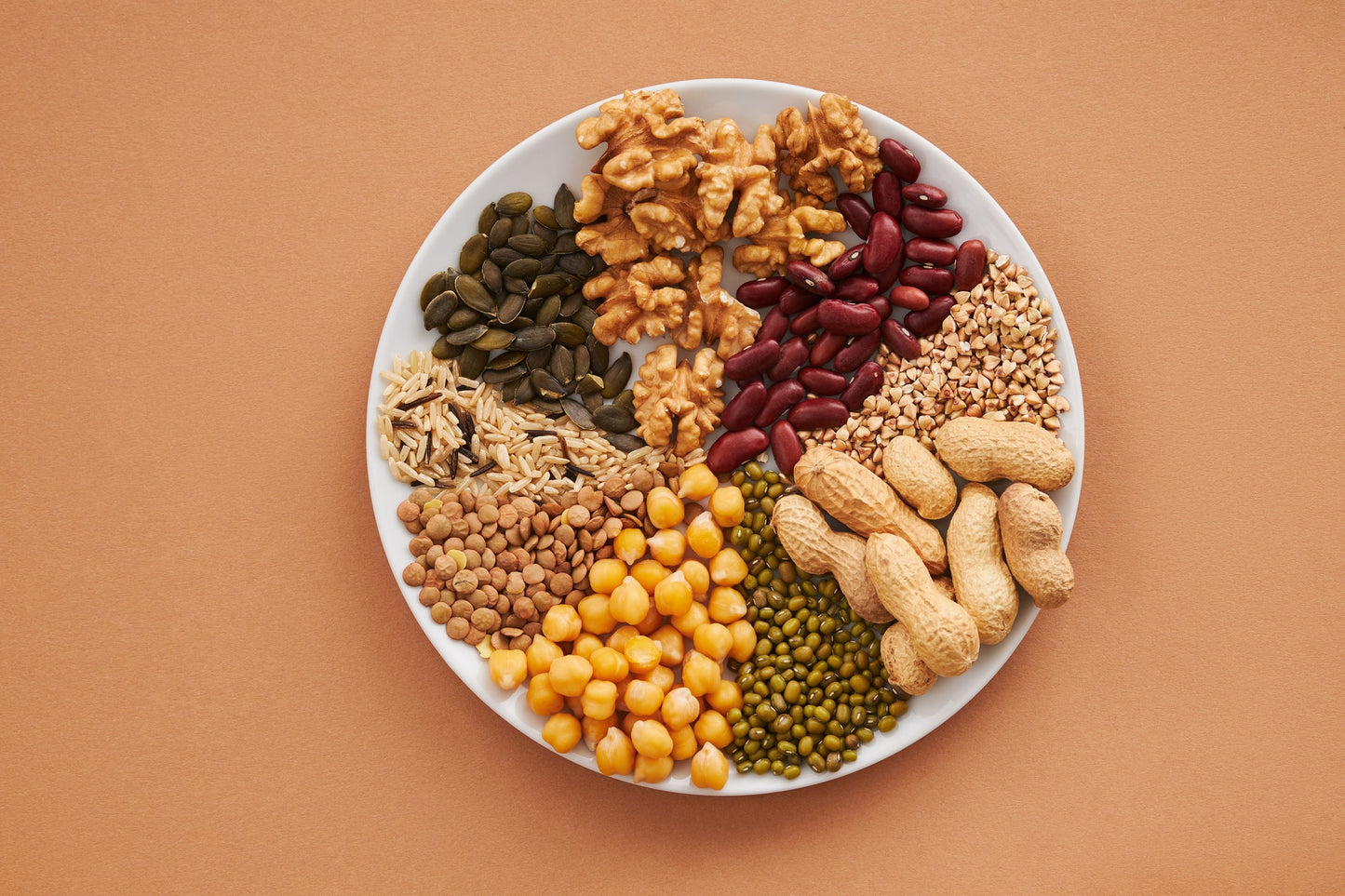
There’s no magic solution to losing weight and maintaining a healthy waistline, but there is something that comes pretty close—protein.
Protein has been proven in study after study to help people lose weight, build muscle, and feel fuller in between meals, which helps keep weight off. These are just a few of many benefits of eating more protein. When you want to add more protein to your diet, what do you do?
If the answer is stocking up on chicken breasts or beef patties, you’re not alone. Poultry and red meats top the list of the most commonly consumed protein sources in the United States. But protein doesn’t have to be limited to animal protein. In fact, research has shown time and time again that adding more plant proteins to your diet can help make you healthier overall.
Plant proteins, which include whole foods like beans, whole grains, nuts, seeds, or plant protein powders, are an oft-overlooked source of protein, even though they provide some pretty impressive health benefits.
Take a look at six of the most convincing reasons to add a little more green protein to your diet:
1. You’ll reduce your cholesterol and saturated fat intake.
Heart disease is the leading cause of death in the United States for both men and women. While a
number of factors can lead to heart disease, high LDL cholesterol levels are one of the most common risk factors. They’re also one of the most controllable—diets high in saturated fat and cholesterol send LDL cholesterol (and your risk of heart disease) through the roof.
All animal products contain both cholesterol and saturated fats, no matter how lean the meat is. Plant-based proteins, on the other hand, contain neither, making them a healthier alternative for those who want to lower cholesterol.
2. You’ll eat fewer calories.
A gram of fat contains nine calories. Plant proteins have little to no fat, which means they have fewer calories than animal proteins. Take edamame and chicken, for example: a cup of edamame has 240 calories while a cup of cooked chicken has 335. Both are excellent sources of protein, but chicken has almost 100 more calories than the edamame. Don’t want the carbs that come with the edemame? Opt for plant protein powders like rice protein or pea protein, which have had most of their carbs removed.
If you’re trying to watch your waistline, plant-based proteins can help you fill up without packing on extra pounds.
3. You’ll reduce your residual hormone intake.
The USDA’s Food Safety Inspection Service works to reduce the amount of hormones, drugs, and other dangerous substances that find their way into the meat supply. However, there have been questionable findings about the effectiveness of making sure residual hormones don’t end up on our plates. Each year, the FDA cites dozens of farms and plants for unhealthy levels of listeria, penicillin, and hormones found in animal products.
If the thought of ingesting livestock antibiotics makes you squeamish, consider switching to or adding more plant proteins to your diet.
4. You’ll help the environment.
The type of protein you eat not only affects your health, but the environment as well. When carbon emissions, pesticides, fuel, water, and other resources are taken into account, it’s clear that meat production has a massive global footprint. One study found that 18% of global emissions come from livestock. An individual with a diet high in animal proteins has more than double the carbon footprint of a vegan, and about double that of a vegetarian.
Widespread droughts in major dairy farming states, including California, not only use valuable water resources, but they also drive up prices for dairy and beef products.
You don’t have to swear off animal meat completely. Even going meatless a day or two a week will make a big impact on the environment.
5. You’ll get more phytonutrients.
Plants are loaded with phytonutrients, chemicals produced by plants that provide a number of important health benefits. A few of the many phytonutrients unique to plants include:
- Avenanthramides. Found only in oats, this phytonutrient acts as a potent anti-inflammatory and can also help lower cholesterol.
- This flavonoid found in kale, quinoa, and other plants has been linked to a reduced risk of cancer and heart disease.
- Carotenoids. Protein-rich green beans also contain a number of carotenoids, like lutein and beta-carotene, that help reduce inflammation.
6. You’ll up your fiber intake.
The average American eats just half the recommended amount of fiber each day, which is 25g for women and 38g for men. Fiber, which is only found in plant-based foods, is essential to proper health by helping with digestion, by controlling blood sugar and helping you feel full after eating.
Fiber is also good for the heart. One study found that people who ate the most fiber increased their longevity; for every 10-gram increase in fiber consumed, the risk of death dropped 12% in men and 15% in women.
Because animal proteins don’t contain fiber, diets high in meat tend to be low in fiber. Adding more plant-based proteins to your diet can help offset the lack of fiber.
Adding more plant-based proteins to your diet is good for your health, your waistline, and even the environment. But don’t think you have to become a vegan overnight. Going meatless once or twice a week, mixing a plant-based protein shake for breakfast, or making sure you load up on veggies and whole grains each meal can help you reap the benefits of plant proteins.
Written By: Jill Overmyer
Reviewed and Edited By: Scarlett Full, in-house Registered Dietitian
